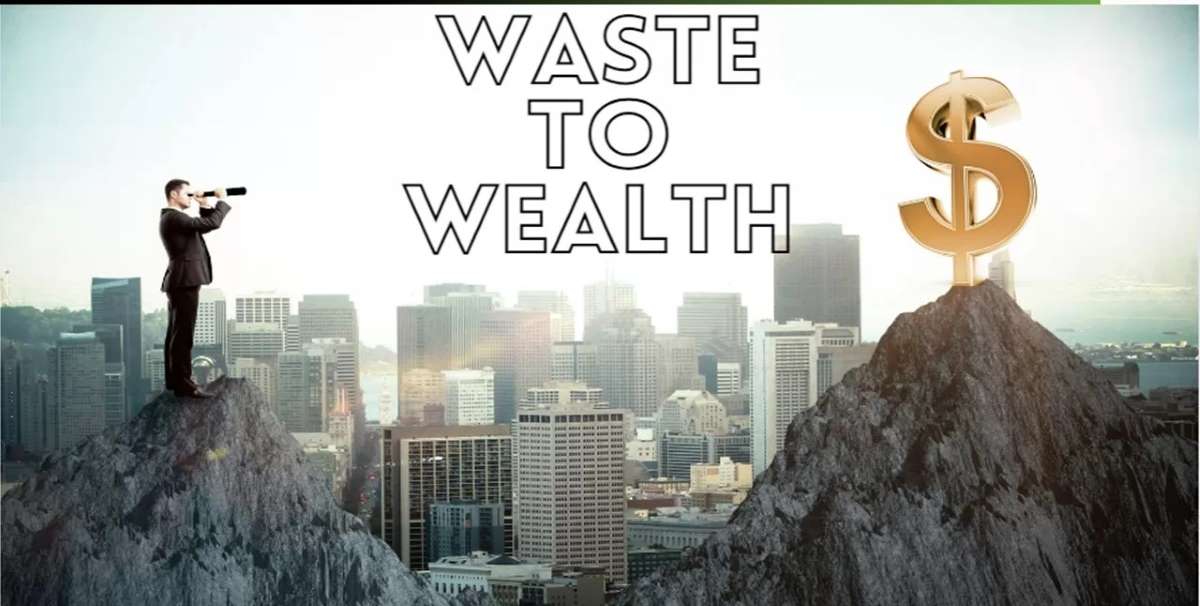
A quiet but powerful transformation is underway in the European Union. The continent, once burdened by mounting waste, is steadily evolving into a hub of recycling innovation. The rise in recycling initiatives and increasing recognition of waste as a valuable resource are paving the way for a thriving recycling industry.
As Thomas Fischer, Deputy Director of management research at the German research institute ITA Denkendorf, explained during a recent ITMAconnect webinar, "Europe will suddenly become a region with a lot of raw material, and the more waste that is collected, the more sense it will make to establish recycling hubs."
A mountain of opportunity
This prediction seems to be coming true. The European Union generated a staggering 2.24 billion tons of waste in 2020, according to Eurostat. However, recycling rates are also rising, with 48 per cent of municipal waste being recycled or composted. This growing volume of recycled material is creating a fertile ground for the recycling industry to flourish. This waste is increasingly being viewed not as a burden, but as a valuable resource. Advanced recycling technologies are unlocking the potential to extract valuable materials from waste streams, creating new economic opportunities and reducing dependence on virgin resources.
Several factors are contributing to this positive trend. One major factor is the stringent regulations that EU has implemented and the ambitious waste management targets, pushing member states to reduce landfill and increase recycling. This regulatory pressure is stimulating investment in recycling infrastructure and technology. Meanwhile, innovations in sorting, processing, and recycling technologies are making it possible to recover more materials from waste streams, boosting the efficiency and profitability of recycling operations. And Europeans are increasingly aware of the environmental impact of waste and are demanding more sustainable products and packaging. This consumer pressure is encouraging businesses to embrace circular economy principles and invest in recycling.
Countries take the lead
Several initiatives across the EU showcase the potential of this new recycling revolution
• The Netherlands: With a recycling rate of over 50 per cent, the Netherlands stands as a beacon of success. The country has invested heavily in waste sorting and collection infrastructure, and its citizens have embraced recycling as a way of life. It is home to several state-of-the-art recycling plants, such as the ARN Recycling Plant in Weert, which processes over 200,000 tons of plastic packaging waste annually.
• Sweden: Sweden has achieved remarkable progress in waste management, with less than 1 per cent of its household waste ending up in landfills. This Scandinavian nation has taken an innovative approach to waste management, generating energy from non-recyclable waste through incineration. The heat and electricity produced are used to power homes and businesses, making Sweden a net importer of waste.
• Germany: The birthplace of the ‘Green Dot’ recycling system, Germany has a long history of waste management leadership. Germany recycles 67 per cent of municipal waste. The country's recycling initiatives are underpinned by stringent regulations and a strong emphasis on producer responsibility.
Recycling hubs for waste management
The emergence of ‘recycling hubs’ is a key trend in the EU's waste management landscape. These centralized facilities utilize advanced sorting and processing technologies to extract valuable materials from waste streams, creating high-quality secondary raw materials for use in manufacturing. The more waste collected, the more economically viable these hubs become, resulting in a positive feedback loop that drives further recycling.
As technology advances and circular economy principles gain traction, the European recycling industry is industry is expected to become more efficient and profitable, generating jobs and contributing to a more sustainable future.
The journey from a waste-burdened continent to a recycling powerhouse is a testament to the EU's commitment to environmental protection and resource efficiency. The rise of the recycling industry is not just an economic opportunity, but also a crucial step towards a greener and more resilient Europe.












